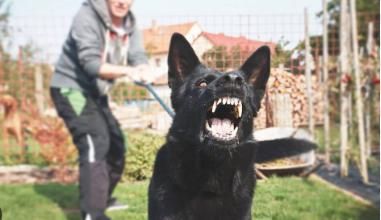Understanding the Vocal Tendencies of Cavapoos: Do They Bark a Lot?

cavapoo puppies, the charming crossbreed between the Cavalier King Charles Spaniel and a Poodle, are celebrated for their affectionate demeanor and intelligence. However, prospective owners often wonder if these dogs are prone to excessive barking. Understanding the barking habits of Cavapoos and how to manage them is essential for a harmonious household.
The Barking Profile of Cavapoos
SAN DIEGO CAVAPOOS inherit traits from both of their parent breeds. The Cavalier King Charles Spaniel is known for its gentle and friendly nature, rarely using barking as a primary form of communication. On the other hand, Poodles can be more vocal, using their bark to alert or engage with their family. Consequently, a Cavapoo’s tendency to bark can vary widely depending on which traits they inherit more strongly.
Generally, HOUSTON CAVAPOOS are considered moderately vocal. They do bark, but they are not typically known as incessant barkers like some other breeds. Their barking is usually triggered by specific situations such as unfamiliar noises, strangers approaching their territory, or when they are particularly excited or anxious.
Triggers and Management Strategies
Understanding what triggers your Cavapoo’s barking is the first step in managing it. Common triggers include:
- Alerts and Warnings: Like many dogs, Cavapoos may bark to alert their owners to someone at the door or something amiss in their environment.
- Attention Seeking: This breed craves human interaction and may bark to get attention, especially if they feel neglected or bored.
- Anxiety: Separation anxiety can be prevalent in Cavapoos due to their strong bond with their owners. This anxiety can lead to barking when they are left alone.
To effectively manage barking, consider the following strategies:
- Training: Early and consistent training is crucial. Teach your Cavapoo the ‘quiet’ command to stop barking on cue. Positive reinforcement techniques, where good behavior is rewarded with treats or praise, can be very effective.
- Exercise and Stimulation: Ensuring your Cavapoo has sufficient physical exercise and mental stimulation can greatly reduce boredom-induced barking. Interactive toys, puzzles, and regular playtime can keep their mind engaged.
- Socialization: Expose your Cavapoo to various situations and people from a young age. Well-socialized dogs are less likely to bark excessively at unfamiliar stimuli.
- Anxiety Management: For dogs with separation anxiety, creating a comforting environment can help. This might include leaving a piece of clothing that smells like you, using anxiety-reducing products like calming diffusers, or in some cases, consulting with a veterinarian about other solutions.
Conclusion
While Cavapoos can bark, they generally do not do so excessively. Their tendency to bark depends largely on their individual personality and the training they receive. By understanding the reasons behind their vocalizations and implementing effective management strategies, Cavapoo owners can enjoy a quieter home and a happier, well-behaved pet. For anyone considering adding a Cavapoo to their life, being proactive about training and enrichment is key to mitigating excessive barking and fostering a loving and peaceful environment.
For more information please visit at https://www.crockettdoodles.com/




